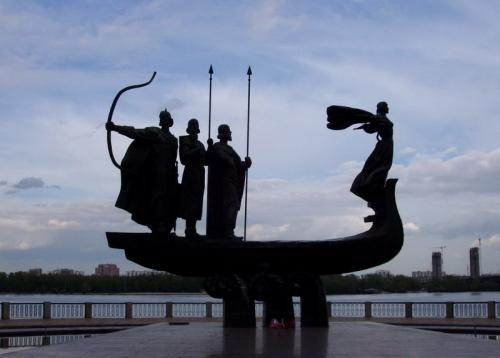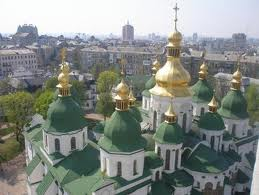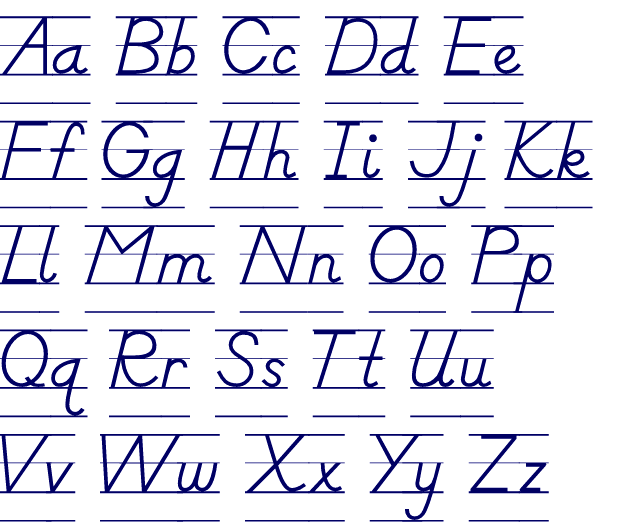Посібник з інтенсивного навчання англійської мови (для студентів внз спеціальності початкова освіта) Частина перша Київ 2013 удк ббк
 Скачать 5.32 Mb. Скачать 5.32 Mb.
|
|
Part 1: agreement A: I am taking my holidays next month. B: Really? So am I. A: I need a change. B: So do I. I’m tired of the same people every day! A: So am I. B: And where are you going? A: To France. B: Really? I went there last year. A: So did I. We always go there, but we haven’t been to Lyon. B: No, neither have I. Part 2: agreement and disagreement Agreement: Disagreement: A: I’m happy. A: I’m not a student. B: So am I. B: I am. A: I’m not crazy. A: I’m a manager. B: Neither am I. B: I am not. A: I was there last week. A: I don’t eat red meat. B: So was I. B: I do. A: I like music. A: I come to work on Sundays. B: So do I. B: I don’t. A: I didn’t watch TV last night. A: I wasn’t busy at work yesterday. B: Neither did I. B: But I was. Suggested Answer Key (lesson 5, grammar part 2, practice 3.) …he was waiting at the airport. He was really looking forward to going to Rome. Just then there was an announcement, ‘ We regret to inform you that flight to Rome will be delayed.’ John didn’t mind waiting. He sat down and tried to finish reading his book. However, in three hours, John started to worry. He had arranged to go on a tour of the city as soon as he arrived and he hated to be late for the excursion in Rome. He wanted to call and warn that he was going to be late. He decided to find out what was going on. He asked the man at the counter, who said, “I’m sorry, Sir, but your flight left two hours ago.” 3  . Conversational topic “Our motherland - Ukraine” . Conversational topic “Our motherland - Ukraine”Pre-reading task You are going to read the text about our country. You are supposed to know much about it. No doubt, it will be easier for you to answer the questions: What are the known symbols of Ukraine in the world? What are the things in Ukraine you are mostly proud of? Put them in order of importance for you. Think about a historical figure and tall about him/her to your group. In your opinion, which present-day figure(s) will eventually become part of history on account of their exceptional contribution? Instructions for the reading: Skim the text first. Get the idea of it – What is it about? Study the words given after the text. Read the text again, underline key words and define the main idea of each paragraph. Retell it. Text A. Portrait of Ukraine The National Flag: first appeared in 1848. The two colours are symbolic: yellow is for wheat in the fields and blue for the sky above them. The Ukrainian Anthem: “Ukraine Has Not Yet Perished,” a song written by Pavlo Chubynskyi in 1863, set to music by Mykhailo Verbytskyi the same year. The National Emblem / Coat of Arms: trident, the classic shape of which was found on the coins of Volodymyr the Great, who ruled in the 10th century. Ukraine, located in the centre of Europe, is larger than any country of this part. Forests cover 13% of territory, chiefly in the Carpathian Mountains and in the northern regions. One third of the world’s black soils are in Ukraine. It has cold winters and warm summers, although a Mediterranean climate prevails in the Crimea. Ukraine has been inhabited since about 1555 B.C. The Slavic ancestors of today’s Ukrainians began to settle later. The archaeological evidence suggests that roots of the pre-Ukrainians may be found in the Trypillya culture, which dates from fifth-to-third Millennium B.C. In the eighth and ninth centuries, seven Slavic tribes formed the state Kyivan Rus’. A prominent early leader, Volodymyr (ruled 980-1015), converted the country to Christianity and established close ties with the Byzantine church. It was in the 11 century that the language spoken on its territory began to develop into the Ukrainian language proper. The history of the country has had tragic and glorious pages. It suffered from the devastating invasion of the Mongols, later the country was ruled by other nations. But the people preserved the cultural heritage of Kyivan Rus; they were strong enough to withstand the pressure from the east and from the west. Ukraine has always fought for its independence. A Cossack state was the best example to it. Ukraine has always glorified its heroes. It is proud of many people either born in Ukraine or who devoted their lives to it and made the involvement to making the country well-known in the world. The year of 1991 is considered to be the beginning of a new epoch in Ukraine. Being an independent state, Ukraine faces a lot of difficulties and at the same time it meets the support of its population. During its history, Ukrainian culture was preserved through folk songs and legends, which are always highly treasured. Traditional popular art, including embroidered clothing and tapestries, is also appreciated. Ukraine is known worldwide for the delicate art of Easter egg painting (pysanka), and this art is still practiced with great skill today. The Ukrainians keep traditions, among them the tradition of hospitality. The family unit is important in Ukraine, and extended family ties are valued. The elderly are treated with love and respect. It is a common practice for parents to support children until they reach adulthood. One of the peculiar features of the Ukrainian nation is that it has numerous Diasporas in the world which preserve its language, its traditions and keep ties with Ukraine. About 10 million of the Ukrainians reside in other countries. As a result every fourth Ukrainian lives outside Ukraine.
LESSON FIVE. Part two 4. Grammar 4.1. Comparative & Superlative Forms S  tudy grammar references first. tudy grammar references first.Help: Superlative degree – найвища ступень Comparative degree – порівняльна ступень Adjective – прикметник Adverb - прислівник Revision 1: Read and compare the following blocks of examples of comparative and superlative forms. 1. In one-syllable adjectives-er and -est are added. He is wise. He is wiser. He is the wisest. 2. er and –est are used withtwo –syllable adjectives that end in – y. The final –y is changed into –i. I am busy. I am busier than an hour ago. - I am the busiest person in the world . 3. More and the most are used with long adjectives. It is important. It is more important than anything else. It is the most important of all.
Nick is good. Nick is better than Bob. Nick is the best of all. 5. More and the most are used with adverbs that end in -ly. Do it carefully. Do it more carefully than before. Do it the most carefully. Revision 2: Read and compare some more examples of comparative and superlative forms. Then give your own examples. 1. Comparative forms. I’m older than my brother I’m older than he is. I’m older than him. 2. Tom is much /a lot/ far older than I am. Ben is a little/a bit older than me. John is less strong than Greg. 3. A pen is less expensive than a book. A pen is not as expensive as a book. Your dress is the same colour as mine. Lucy has got as many dresses as Niki. No one else can type as fast as she does. She types faster than anyone else. The weather is getting warmer and warmer. This hotel is more comfortable than the other one. 4. John and Mary have the same/similar/different books. That car is similar to this one. 5. No one else can paint like her. There is no place like home. She swims like a fish. Do as I tell you. 6. Double comparatives. The harder you study, the more you will learn The more you live, the more you learn. The harder he works, the more money he makes. The warmer the weather, the better I like it. 7. Superlative forms. Tokyo is one of the largest cities in the world David is the most generous person I have ever known. Those books are quite good, but this one is the best of all. The final exam was the least difficult of all. It’s the thickest forest I’ve ever seen. He is by far the cleverest student in our group. Practice –Grammar in use Task 1: Give the comparative and superlative forms of the following adjectives and adverbs. E.g.: high – higher – the highest
Task 2: Fill in the gaps with the correct form of the adjective/adverb in brackets. 1. I like living in the country. It’s a lot ______ (peaceful) than the city. 2. I felt very ill last week, but I’m slightly ______ (good) now. 3. I can’t hear you. Could you speak a little ______ (loud), please? 4. Steve is ______ (tall) boy in the basketball team. 5. This computer is very old. I need something ______ (modern). 6. The new library is much ______ (close) to my house than the old one. 7. Jane’s new haircut makes her look much ______ (attractive). 8. This jacket was ______ (expensive) of all. 5  . Conversational topic: ‘Kyiv, a capital of Ukraine’ . Conversational topic: ‘Kyiv, a capital of Ukraine’Instructions for the reading: 1. Skim the text first. Get the idea of it – What is it about? 2. Study the words given after the text. 3. Read the text again, underline key words and define the main idea of each paragraph. 4. Retell the text, you can also add more details to each paragraph, using your knowledge and experience. Text B: Kyiv, the Mother of Russian Cities Kyiv is one of the most ancient European cities and its history as the capital of the ancient state of Rus’ dates back to 862 (according to Nestor, the chronicler). The archaeological digs testify that the territory of contemporary Kyiv was occupied even earlier.  The city, situated on the high hills on the bank of the Dnieper, had the excellent defense position and, above all, it was located on the trade route “from the Variangians to the Greeks.” The place reached the heights of its development during the reign of the Prince Yaroslav the Wise, thanks to whom Kyivan Rus’ was widely known and respected by other nations. Nowadays Kyiv has become the centre of political, economic, scientific and cultural life of Ukraine. The city equals to Paris in area but it is much greener. Parks, gardens and boulevards occupy almost two-thirds of its territory. It is especially beautiful in spring, when chestnut-trees are in blossom. Kyiv is also a city of students. There is a great choice of colleges and universities. During World War II German fascists liquidated thousands of its inhabitants, including 200,000 Jews. But Kyiv has survived. It is growing, developing and becoming more picturesque. However, people are the main treasure of the capital. They are tender, sentimental and dreamy on the one hand, and diligent, courageous and persistent on the other hand. They are people who do not forget their past and the people fixed upon the future. Kyiv is unique in its beauty and originality. One can always find his own place for walks and rest. Its historical places are a treasury of medieval art and architecture that contain splendid mosaics, frescoes and icons. The restored Uspensky and St. Mikhail Cathedrals welcome all the kyivites and guests of Kyiv. There are unique Kyiv Pechersk caves, just visiting of which, as the experts assure, can heal various diseases. This place has become a sacred place of pilgrimage. The St. Volodymyr Cathedral is famous for its murals. One of the most picturesque spots in Kyiv is Andriyivsky Uzviz with its multi-style paintings and works of talented craftsmen. Come and enjoy the sights of Kyiv!
6  . Supplementary reading. Discover the world with us . Supplementary reading. Discover the world with us 6.1. Read and translate the text. Text C: St. Sophia’s Cathedral S  aint Sophia’s Cathedral was constructed in 1017--1031 in honour of Prince Yaroslav the Wise's victory over the Pecheneg tribe. It was the main metropolitan church of Kyivan Rus'-Ukraine. Ceremonies to designate great events, public meetings and the writing of chronicles took place here. The first library in Kyivan Rus’ was located here. The cathedral bears a resemblance to Byzantine constructions, but there is no direct analogy. The original forms of the Romanesque style were preserved until the 17th century. The church facades were not plastered and were embellished with decorative ornaments and paintings. The interior reveals the harmonious union of mosaics and fresco paintings in a style similar to the Byzantine style. Religious and secular themes predominate. Of great value are some decorative works of the 11th century. aint Sophia’s Cathedral was constructed in 1017--1031 in honour of Prince Yaroslav the Wise's victory over the Pecheneg tribe. It was the main metropolitan church of Kyivan Rus'-Ukraine. Ceremonies to designate great events, public meetings and the writing of chronicles took place here. The first library in Kyivan Rus’ was located here. The cathedral bears a resemblance to Byzantine constructions, but there is no direct analogy. The original forms of the Romanesque style were preserved until the 17th century. The church facades were not plastered and were embellished with decorative ornaments and paintings. The interior reveals the harmonious union of mosaics and fresco paintings in a style similar to the Byzantine style. Religious and secular themes predominate. Of great value are some decorative works of the 11th century. The interior of the cathedral is also embellished with fresco ornamentation, mosaic pavement, marble decorations, etc. The cathedral contained the tombs of the Grand Kyivan Princes. Yaroslav the Wise, Vsevolod, Rostyslav, and Volodymyr Monomakh were buried here (only the sarcophagus of Yaroslav the Wise has been preserved). After the Tatar-Mongol invasion of 1240, the cathedral gradually fell into ruins. In the 16th century Greek Catholic priests served Mass here. In the 1630s-1640s the Kyivan Metropolitan P. Mohyla founded a monastery in the cathedral. He engaged the Italian architect O. Mancini to work on its restoration. In 1685—1707 the cathedral was rebuilt in the Ukrainian Baroque style. A Baroque iconostasis was built in 1731—1747. St. Sophia's Cathedral is considered to be a masterpiece of world architecture. 6.2. Tell about other Ukrainian cities or towns and their curiosities. 7. Written task Use the vocabulary of the texts A, B, C and your own experience to write about your country or the place where you live.  Follow the structure of any writing in the English language, it consists of three parts: introduction, main body which includes sub-headings and conclusion. In order to complete a writing task successfully you need to understand the task fully.Your discursive essay/composition should be argumentative. Any writing should contain the following information: - the type of task: e.g. report, essay etc.; - the situation and target reader; - the style of writing: e.g. formal for a report, informal for a friend etc; - the subjects/topics to include: e.g. include details of…, suggesting ways to…, etc. Reread a draft of your writing first and pay attention to the correct use of tenses, sequence of your thoughts, correct punctuation and spelling, appropriate use of vocabulary, an interesting plot with an unusual beginning and slightly surprising ending as well as to the variety of descriptive language and writing techniques.  Test five. Grammar & Vocabulary
SUPPLEMENTARY PART Appendix 1 PHONETICS REFERENCE SECTION 1. THE ENGLISH ALPHABET  2. UKRAINIAN-ENGLISH TRANSLITERATION TABLE
|
